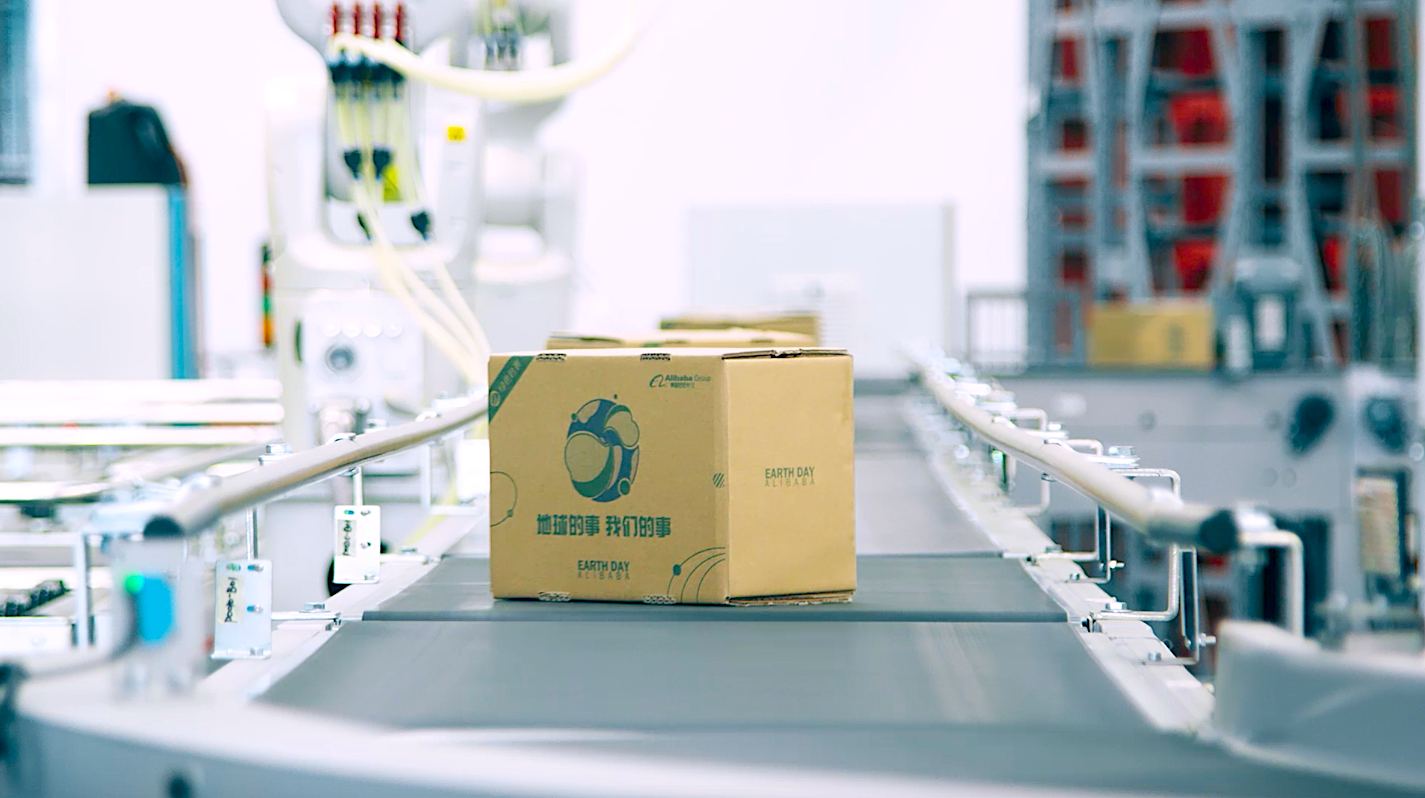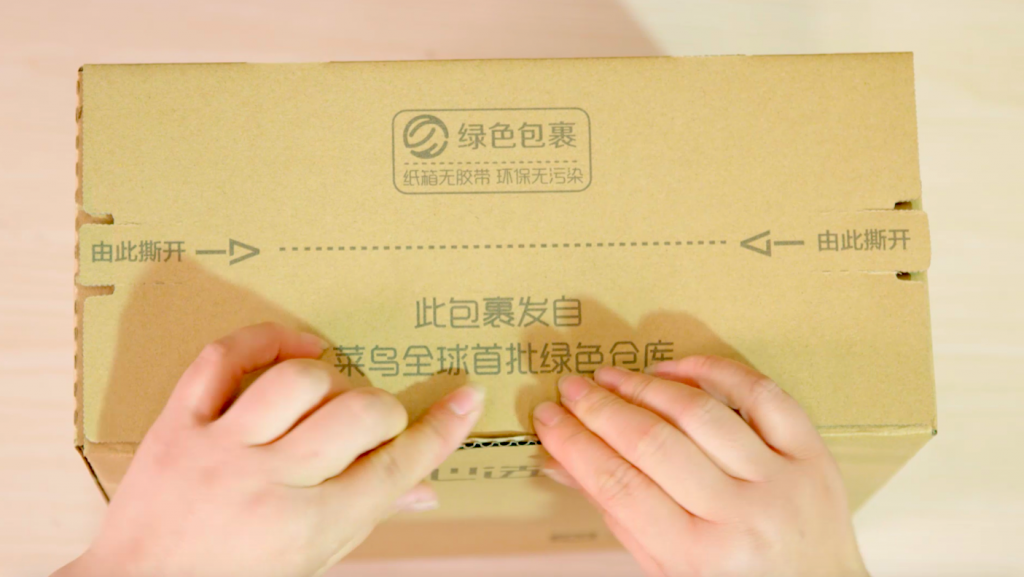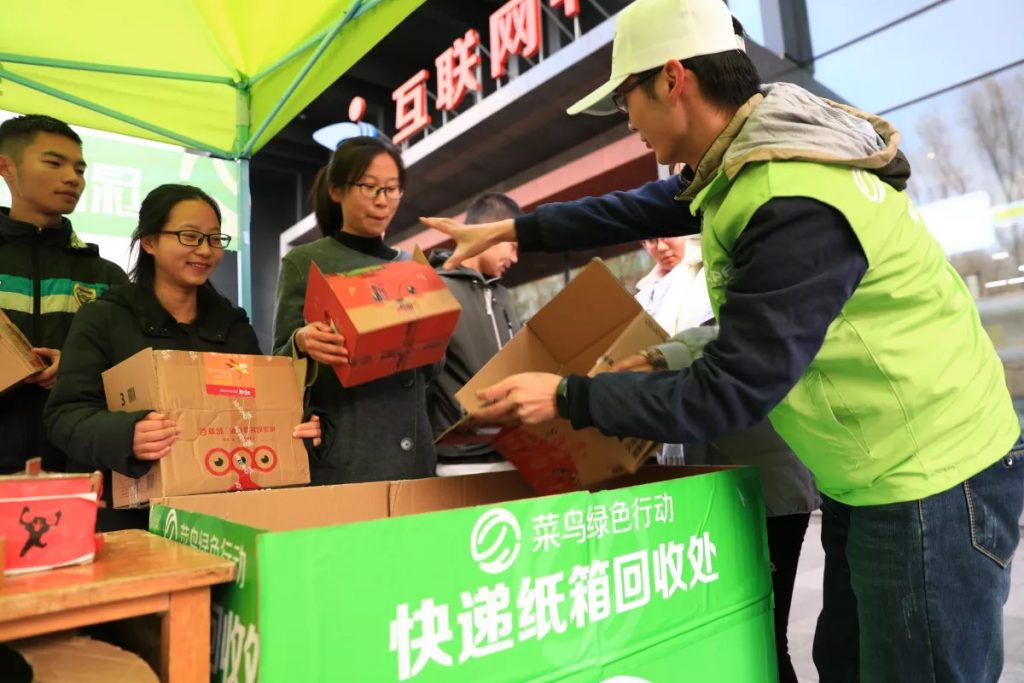
With great success comes great responsibility is the way logistics company Cainiao sees it.
Having arranged delivery for a record 812 million packages from this year’s 11.11 Global Shopping Festival—a 24 percent rise from last year—success is a given. As for the responsibility part, the Alibaba logistics affiliate has big plans on how to protect the environment.
In an effort to make the world’s largest shopping bonanza as “green” as possible, the company rolled out a number of sustainable development initiatives aimed at reducing waste and streamlining operations to boost efficiencies across the entire logistics chain.
Those sustainability efforts started at the warehouse. By the time this year’s festival kicked off, all of Cainiao’s warehouses had been equipped with a smart-packaging system. The system assessed purchased items by category, volume, weight and area, and then matched the goods to the most space-efficient form of packaging. Some factories could save as much as RMB 10 million ($1.5 million) a year by using this system, according to Cainiao’s estimates.
The plan is to take smart packaging even further, said Haoyuan Hu, a Hangzhou-based algorithm development engineer at Cainiao, to customized packaging. That customization would be based on factors such as matching the types of products in a particular warehouse with the shopping habits of consumers within range for delivery, giving Cainiao greater visibility on exactly what packaging would be needed and further reducing waste.
“When we can achieve that, we can expect to reduce another 10 to 15 percent of wasted packaging material for the entire logistics sector,” he said.

Cainiao also set up 20 “green warehouses” across China where all parcels were packaged with renewable materials before shipping. Skincare brands Kiehl’s and DHC, Danish jewelry maker Pandora, Japanese consumer electronics company Casio and fashion brand Esprit were some of the global brands who used Cainiao’s renewable packaging during 11.11.
On the consumer side, Cainiao repurposed hundreds of delivery points across 10 major Chinese cities—including Beijing, Shanghai, Shenzhen, Guangzhou and Hangzhou—to double as recycling stations for unwanted shipping boxes. For the week following the mega sale, Cainiao partnered with packaging and paper-manufacturing company Shanying Group to ensure the donated boxes could be promptly retrieved and reused in all 10 cities.
Also, for every 10 cardboard boxes a consumer returned, Cainiao said it would plant a tree in Dunhuang City, in China’s rural northwest, to combat desertification. The company pledged to plant a minimum of 100,000 trees in the area, regardless of the number of boxes recycled.

“Launching the 20 green warehouses and hundreds of recycling points across China is only the beginning for our push for green logistics,” said Zhijing Niu, who heads the green logistics campaign at Cainiao. The company also wants to align with governments, logistics industry partners, merchants and consumers to better protect the environment, he added.
Cainiao’s recent green programs are a follow-on from, and expansion of, some of its previous environment-focused actions and programs. In 2016, Cainiao joined hands with 32 industry partners to launch a “Go Green Project” to explore ways of mitigating the logistics sector’s environmental impact, seeking to cut 3.62 million tons of carbon emissions by 2020 while also replacing 50 percent of its e-commerce packaging with biodegradable materials.The Cainiao Green Foundation, formed in March with six leading logistics providers in China, will put about RMB 300 million ($45.2 million) toward similar initiatives and research.
At the end of last year, Cainiao introduced biodegradable plastic bags and sturdy, reusable paper boxes as well, which incorporate a special folding technique and glue—also biodegradable—to replace wrapping tape. Sellers who use the packaging will have a certified label displayed next to their products on the website, and consumers would receive eco-friendly parcels free of charge. As of today, Cainiao has distributed over 10 million parcels using green packaging.




